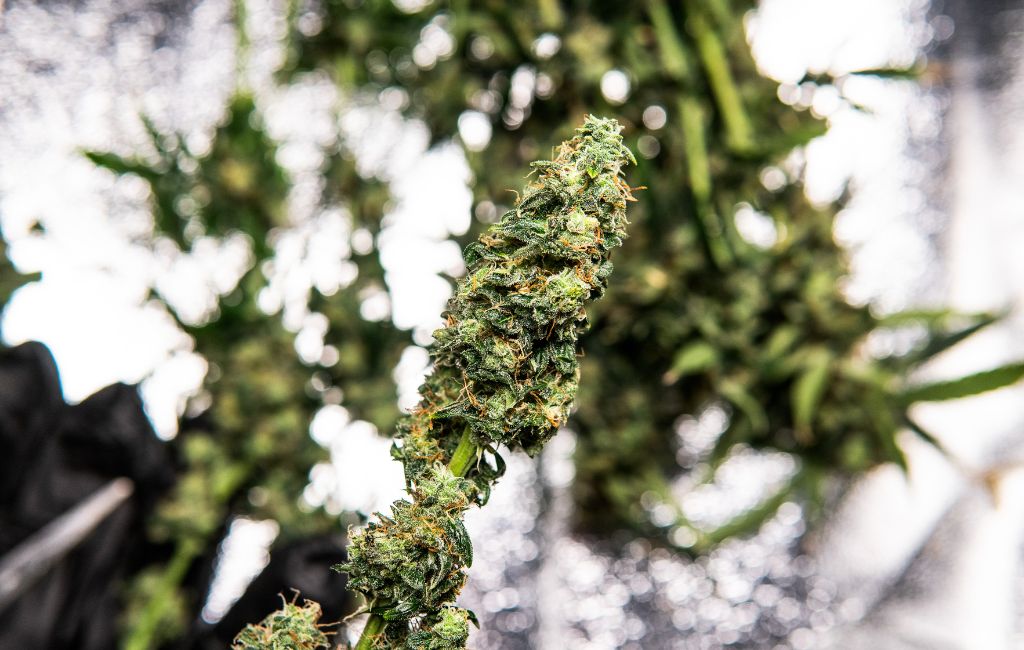THCa Flower for Wellness: Unlock Natural Healing Benefits
In recent years, the interest in cannabis and its derivatives has surged, with many seeking natural alternatives for health and wellness. Among the various compounds found in cannabis, THCa (tetrahydrocannabinolic acid) has gained attention for its potential therapeutic benefits. Unlike THC, THCa is non-psychoactive, making it an appealing option for those looking to explore the healing properties of cannabis without the high. Let’s dive into THCa flower for wellness: Unlock Natural Healing Benefits.
Understanding THCa: The Basics
THCa is a cannabinoid found in raw and live cannabis plants. It is the precursor to THC, the compound responsible for the psychoactive effects of cannabis. When cannabis is heated through smoking, vaping, or cooking, THCa converts to THC through a process called decarboxylation. In its raw form, THCa does not produce any intoxicating effects, allowing users to experience potential health benefits without altering their mental state.
Potential Health Benefits of THCa
Research into the therapeutic properties of THCa is still in its early stages, but preliminary studies and anecdotal evidence suggest several potential benefits:
- Anti-inflammatory Properties: THCa may help reduce inflammation, making it a potential option for those suffering from conditions like arthritis and inflammatory bowel disease.
- Neuroprotective Effects: Some studies indicate that THCa might protect brain cells, offering potential benefits for neurodegenerative diseases such as Alzheimer’s and Parkinson’s.
- Antiemetic Benefits: THCa has shown promise in reducing nausea and vomiting, which could be beneficial for patients undergoing chemotherapy or those with chronic gastrointestinal issues.
- Appetite Stimulation: Like THC, THCa may help stimulate appetite, providing relief for individuals dealing with appetite loss due to medical conditions or treatments.
Case Studies and Research
While comprehensive clinical trials are limited, several studies and case reports highlight the potential of THCa:
A 2013 study published in the British Journal of Pharmacology explored the anti-inflammatory effects of THCa. The researchers found that THCa exhibited significant anti-inflammatory properties, suggesting its potential as a treatment for inflammatory conditions.
In another study, researchers investigated the neuroprotective effects of THCa on mice models of Parkinson’s disease. The findings indicated that THCa could help protect dopamine neurons, which are typically affected in Parkinson’s patients.
Additionally, anecdotal evidence from patients using THCa-rich cannabis products suggests improvements in symptoms related to chronic pain, nausea, and appetite loss. While these reports are promising, more research is needed to fully understand the scope of THCa’s therapeutic potential.
How to Use THCa Flower
For those interested in exploring THCa for wellness, there are several ways to incorporate it into a daily routine:
- Raw Consumption: Consuming raw cannabis leaves or flowers in smoothies or salads can provide a direct source of THCa.
- Tinctures and Oils: THCa tinctures and oils offer a convenient way to measure and consume precise doses.
- Topicals: THCa-infused creams and balms can be applied directly to the skin for localized relief from pain and inflammation.
Legal Considerations
The legal status of THCa varies by region, as it is often classified under the same regulations as THC. In areas where cannabis is legal for medical or recreational use, THCa products are generally available. However, it’s crucial to understand local laws and regulations before purchasing or using THCa products.
Conclusion
THCa presents an intriguing option for those seeking natural wellness solutions. With its potential anti-inflammatory, neuroprotective, and antiemetic properties, THCa offers a range of possible health benefits without the psychoactive effects of THC. As research continues to unfold, THCa may become a valuable component in the landscape of natural healing. For individuals interested in exploring THCa, understanding its properties and legal status is key to making informed decisions about its use.
